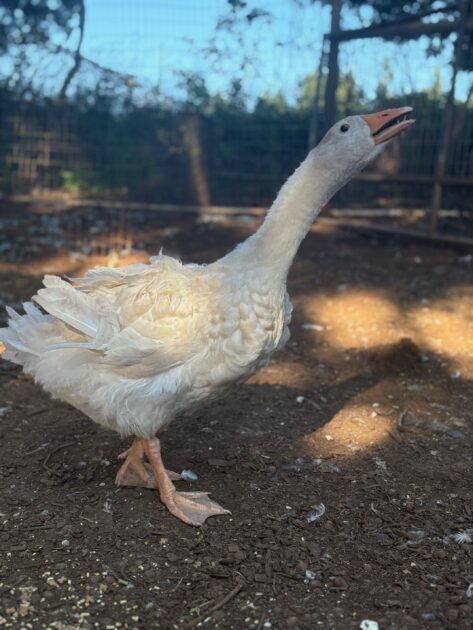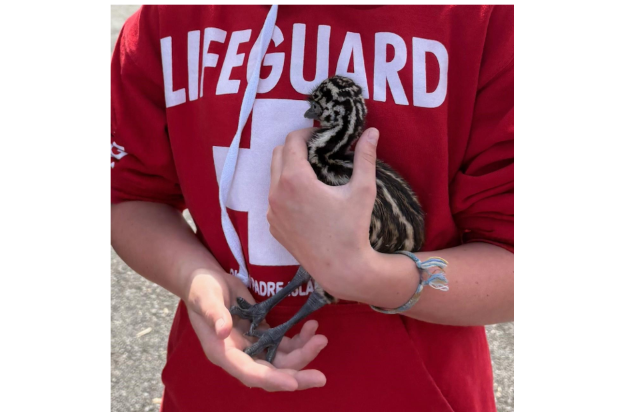In the sprawling rural landscape of Silverton, Oregon, one 6th-8th-grade teacher, Mrs. Marshall is redefining hands-on learning, proving that science is for everyone, everywhere. With a passion for both education and her backyard farm, Mrs. Marshall has cultivated a unique agricultural program that not only teaches students about animal care but also equips them with real-world DNA analysis skills, using the very tools farmers employ for genetic diagnostics.
Bringing the farm to the classroom
Mrs. Marshall, an ELA and Social Studies teacher, began by bringing her home incubators to class, sparking an immediate fascination among her students for hatching chickens, ducks, and emus. This initial spark ignited a larger vision: to launch a dedicated Ag class. With a zero-dollar budget, Mrs. Marshall, alongside her dedicated students and supportive parent club, embarked on a journey of grant writing and fundraising, securing vital donations for the acquisition of a school greenhouse.
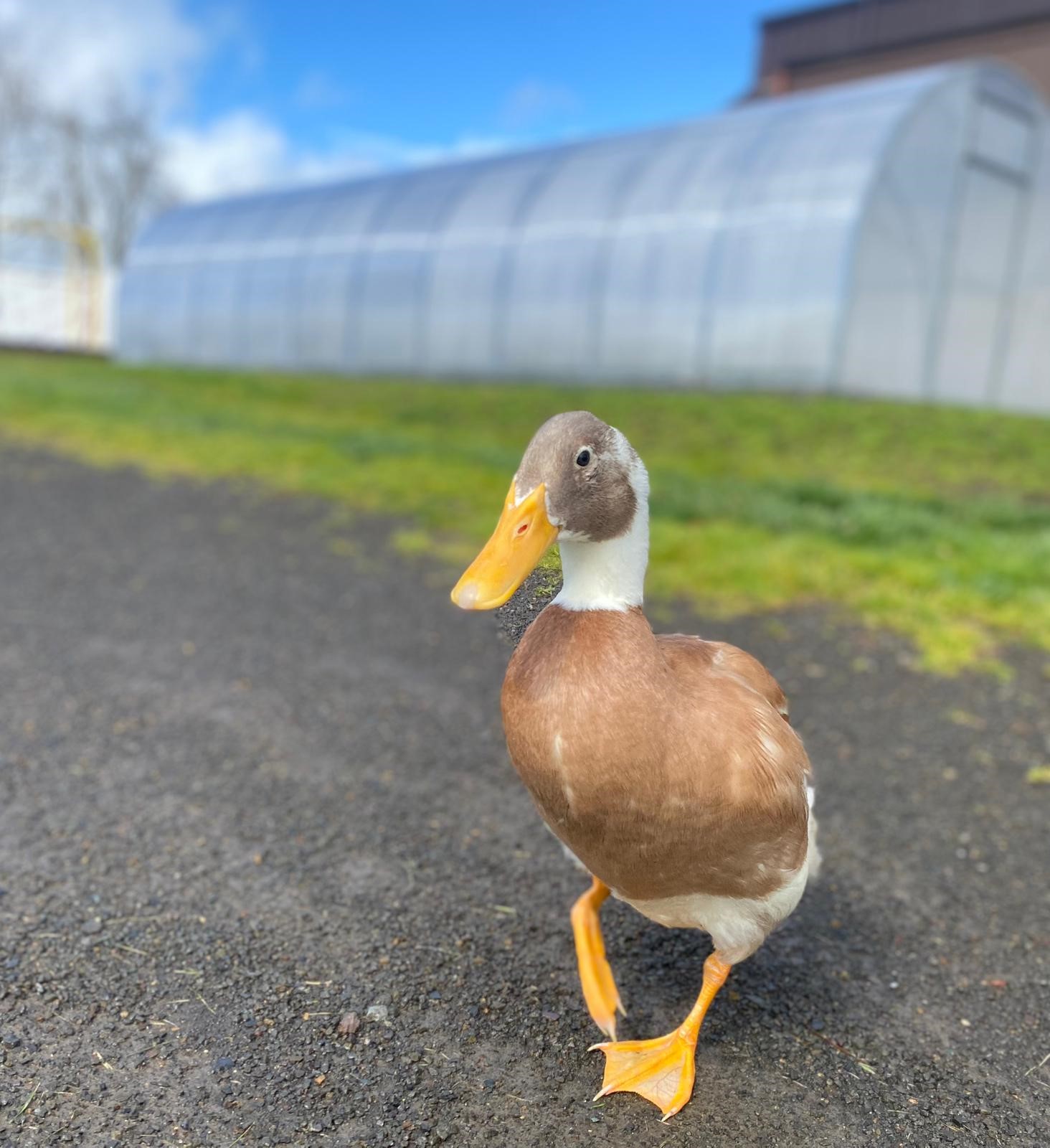
Nugget the duck, in front of the greenhouse at the Central Howell K-8 (Silver Falls School District)
DNA testing to solve breeding challenges
To help fundraise, the school decided to sell the hatched birds. However, buyers hesitated to purchase unsexed chicks, as hens are often preferred over roosters. Therefore, Mrs. Marshall began looking for a way to determine chick sex early. After considering mailing samples to a lab for DNA testing, she realized she could perform the tests herself using portable equipment in the classroom. On-farm DNA testing is not only more affordable but also provides an excellent platform for hands-on scientific training for her students. With this dual purpose in mind – testing birds for sale and advancing the hands-on scientific education of her students – she secured necessary resources from organizations like the school’s Parent Club, the Marion County Farm Bureau, and the ASAP program, then contacted miniPCR Dx to acquire all the required materials for on-farm DNA testing.
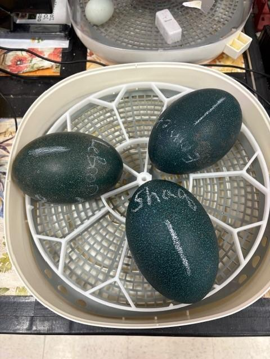
Emus (in the front) and chicken (in the back) eggs in the classroom incubators
Mrs. Marshall’s story is a prime example of how dedicated educators can successfully secure grants to bring innovative programs to life.
Taking real-world genetics to the next level
This coming academic year, thanks to grants and miniPCR Dx, Mrs. Marshall’s students will be taking their learning to the next level. They are gaining direct, hands-on experience with DNA extraction, gel electrophoresis, and micropipetting, all within the context of determining chick sex. This isn’t just a classroom exercise; real farmers use the very same diagnostic tools and techniques they’re practicing to run their operations efficiently. As they’ll be performing genuine diagnostic tests, students will learn the practical applications of genetics and see how scientific knowledge directly impacts breeding goals and even the profitability of a farm.
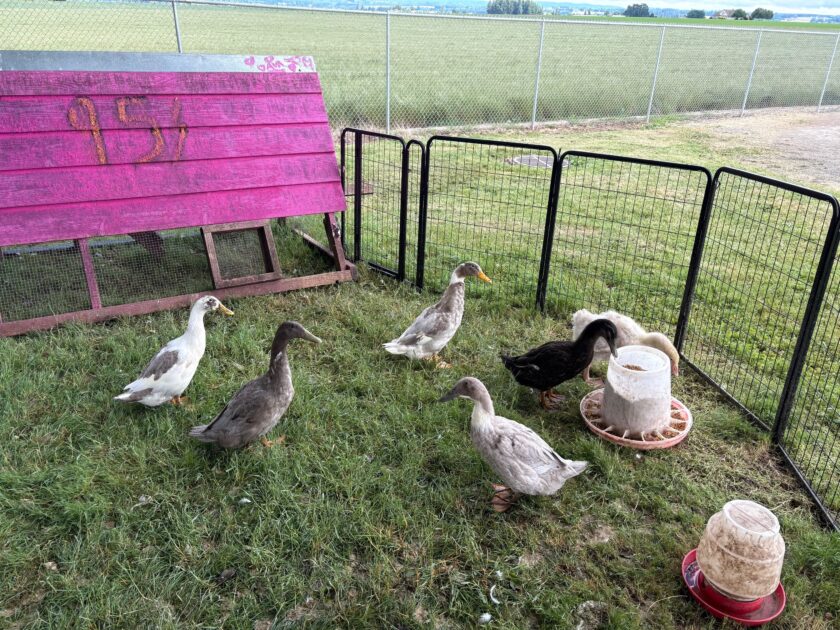
The duck coop setup.
Mrs. Marshall’s program is a shining example of interdisciplinary learning, bridging genetics, biology, and Ag science. Her students are not only bonding with animals and learning proper care, but also developing an entrepreneurial spirit by understanding market needs. It’s a testament to how accessible molecular biology can be, inspiring future scientists and agricultural leaders.
Stay tuned for more!
Stay tuned for updates on how Mrs. Marshall’s students set up their lab and the exciting results they achieve!
